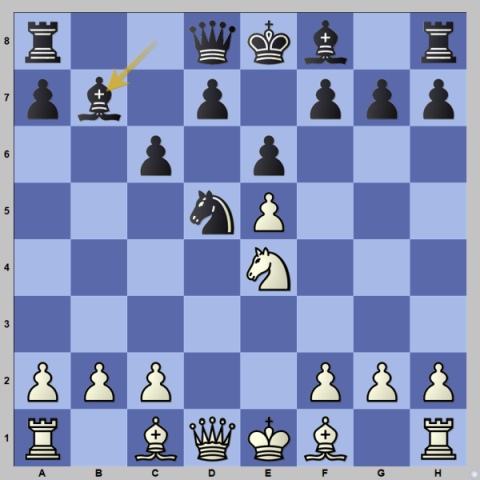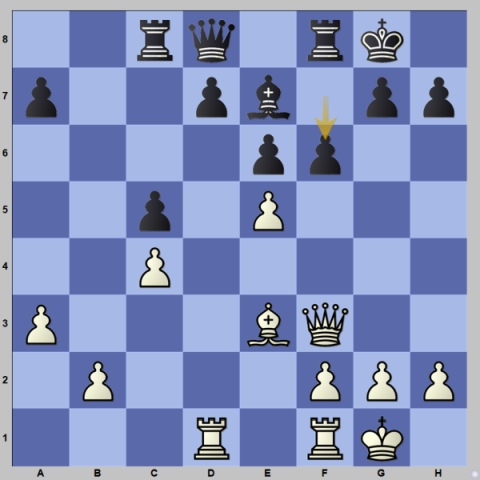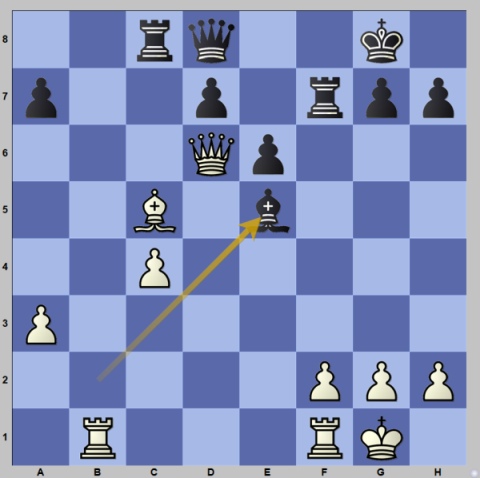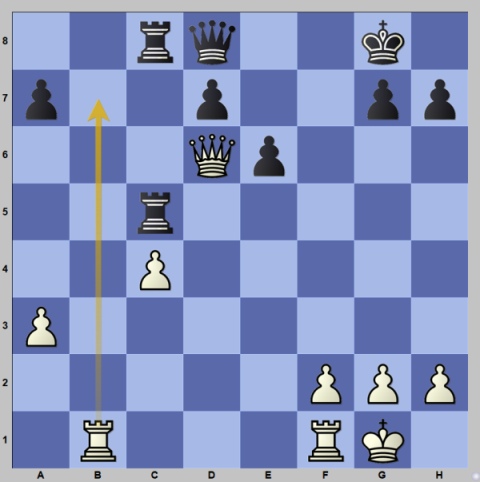In what turned out to be yet another day of surprises, Lei Tingjie and Ju Wenjun settled for a draw in their round nine game after an intense battle which lasted four hours and 59 moves. The score remains even, 4.5:4.5
Ju started with a surprise on move one, choosing to respond to 1.e4 with c5 – an opening she had not played for a long time. In the Four Knights Variation of the Sicilian both sides blitzed their opening moves. After Ju made another unusual choice with 8…Bb7, Lei then struck back with her own surprise with 10.a3.

Despite the tit-for-tat exchange of surprises, the position on the board remained balanced. After finishing the opening phase, the two quickly progressed to a forced line where several pieces were exchanged, ending in an even queen and rook endgame.
Staying true to her spirit of looking to take the initiative, Lei temporarily sacrificed a pawn. A pair of rooks was exchanged, and White managed to regain a pawn, but eventually, the queens were traded off. By move 40 – when the first time control was reached – the game was a complete dead draw.

Lei was trying to make a breakthrough in a theoretical draw, but on move 59 finally, the two agreed on a draw following threefold repetition.
In the post-game press conference, Lei said that the game was “normal” and that “neither side had much chance”. She added that she wasn’t surprised much by Ju’s 1…c5 move. Ju agreed that the game was “solid for both”.
At one point in the press conference, it seemed that Lei forgot how many games were played in the match so far. When asked how physically intense the match is, Lei couldn’t immediately remember the number of games played and needed to be reminded. “It hasn’t been too difficult for me… Also, the score is even right now and I am happy to play like this”, she added.

For the defending World Champion Ju, this was a relatively comfortable draw. After staging a comeback with a victory in game eight, Ju managed to halt Lei’s momentum, preventing her from gaining any advantage or unleashing her initiative.
In game ten, Ju Wenjun will play with the white pieces and also in game 12, giving her a slight edge.
With only three more games remaining in the classical part of the match, both players must be cautious not to make any mistakes, as there won’t be many opportunities for a comeback.
Game ten will take place on Wednesday, 19th July, at 3 PM Local Time in Chongqing (GMT +8).
Here follows a closer look at game nine of the match:

The honour of making the first move in today’s game was given to Wang Shengao, Chairman of the Standing Committee of Changshou District People’s Congress, and Xiong Bin, a National Model Worker.
Lei Tingjie was playing as White and opened with 1.e4.
1…c5 Another opening surprise from Ju Wenjun, who did not play this opening in the match before. “This is going to be very interesting” was the first comment made by Grandmaster Judit Polgar as she saw Ju’s move.
Both sides played quickly, entering the Four Knights Variation. The last time Ju Wenjun went for this opening was in 2018. However, this was part of her opening preparation earlier in her career. The two played very quickly in the opening.

Ju just put her bishop on b7, which is a rare move in this position. 8…c5 or Qc7 are considered the main continuations here.
9.Be2 c5 and now Lei launched a novelty: 10.a3. It would seem that now Lei took her opponent by surprise after being stunnedby Black’s opening choice.
The standard move for White in this line is to castle short. The idea with 10.a3 is for White to play c4 and prevent Black’s d5-knight from jumping to the b4-square and then relocating to d4 via c6.
10…Qc7 is met with 11.Nd6+! and if 11…Bxd6 12.exd6 (Qxd6?? 13.c4) Qc6 13.f3 – a computer move, an odd move, but giving White an edge. “This just goes to show how different chess is nowadays”, noted Judit Polgar – “you see players playing these moves without any emotions, and these are the moves you would never dare to consider in earlier times”.
10…Ne3 Not the most obvious move choice, but White’s e4-knight is hanging and the line is forced. 11.Bxe3 Bxe4 12.0-0 And the position is even.

Black needed to undermine White’s e5-pawn, and Ju decided to play straight away 16…f6 after spending four minutes on the clock.
This was the first point in the game where both players spent a significant amount of time thinking about the next move.
White had an option to take on f6 and proceed with placing her queen on e4 (putting pressure on the e6 pawn and pinning the d7 pawn) or g3 – holding the d6-square pinned but also aiming at the black king’s fortress.
After 12 minutes of thinking, Lei played 17.Qg3.
Now it was Ju’s turn to spend more time on the clock. After more than 17 minutes, she went for the best move choice: 17…fxe5
Now followed a series of exchanges wrapped in tactics which both players needed to calculate beforehand: 18.Qxe5 Bf6 19.Qd6 Bxb2 20.Bxc5 Rf7 21.Rb1 Be5!

“This was a shock to Lei”, said Polgar, noting that she wasn’t sure the challenger saw this coming. White hasn’t overlooked a piece or anything like that, but she just gave Black a simple way to make things easier and hold an even position.
22.Qxe5 Rf5 23.Qd6 Rfxc5

The two have traded the bishop and reached an even position with mutual pawn weaknesses balancing each other. Instead of defending her c4-pawn, Lei decided to sacrifice it, hoping to exert some pressure with 24.Rb7.
However, it was not enough to achieve anything tangible as Ju timely returned the pawn and liquidated in a drawish rook endgame.
A draw was agreed on move 59 following threefold repetition.
Text: Milan Dinic
Photos: Stev Bonhage
Official website: womenworldchampionship.fide.com/
About the Match
The match will take place in two Chinese cities, where each of the contestants comes from. The first half of the match will be in Shanghai, while the second half takes place in Chongqing.
The match will consist of 12 games of classical chess. The payers will have 90 minutes for the first 40 moves, followed by 30 more minutes for the rest of the game, plus a 30-second increment per move starting on move one.
Players cannot offer a draw before they reach the 41st move.
In case of a tie, there will be the following tiebreaks:
Four games with a 25+10 time control.
Two games with a 5+3 time control.
Two more games with a 5+3 time control.
One game with a 3+2 time control, until a winner is determined.
The prize fund is €500,000, with €300,000 going to the winner and the remaining €200,000 to the runner-up.
If the outcome of the match is decided upon tiebreaks, the winner will take €275,000, while the runner-up will receive €225,000.








